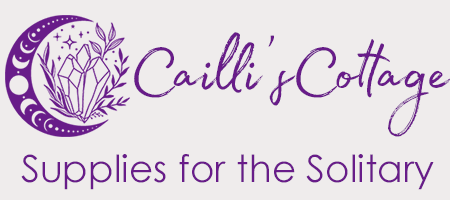Using herbs in various forms, such as teas, tinctures, or topical applications, can offer numerous benefits for one's well-being. However, it's important to approach herb usage with caution and knowledge. Here are some guidelines to help you harness the potential healing power of herbs effectively and safely:
Research and Educate Yourself: Before using any herbs, take the time to research and understand their properties, benefits, and potential side effects. Identify trustworthy sources of information such as books, reputable websites, or consult with a qualified herbalist. This knowledge will empower you to make informed decisions regarding herb selection and usage.
Quality Matters: Ensure that you obtain herbs from reliable sources, such as legitimate herbal suppliers, or grow them yourself! Quality herbs are more likely to yield the desired therapeutic effects and minimize the risk of contaminants or adulteration.
Start Slow and Observe: When introducing a new herb into your routine, start with small amounts or low concentrations. This approach allows you to gauge your body's response and potential sensitivities. Observe any changes, both positive and negative, and adjust the dosage or frequency accordingly.
Use the Right Preparation Method: Different herbs require specific preparation methods to extract their beneficial compounds effectively. Some herbs are best utilized as infusions, while others may require decoctions, tinctures, or topical applications. Follow established recipes, guidelines, or seek expert advice to ensure proper extraction and maximize their healing potential.
Respect Individual Differences: Each person's body is unique, and individual responses to herbs may vary. Consider factors such as age, underlying health conditions, allergies, and medications when determining herb usage. If you have any concerns or doubts, consult with a healthcare professional, particularly if you have pre-existing health conditions or are pregnant or breastfeeding.
Watch for Interactions: Be mindful of potential interactions between herbs and medications or other supplements you may be taking. Some herbs may enhance or interfere with the effects of certain medications. Consult with a healthcare professional or pharmacist to assess any potential interactions and ensure your herb usage is safe in combination with your current regimen.
Proper Dosage and Duration: Adhere to recommended dosage guidelines provided by credible sources. Taking excessive amounts of herbs or using them for extended periods may lead to adverse effects. If you experience any unusual symptoms, discontinue use and consult a healthcare professional.
Store Herbs Properly: To maintain the potency and freshness of your herbs, store them in airtight containers away from direct sunlight, moisture, and heat. Follow any specific storage instructions for each herb to preserve their integrity.
Label and Identify: Ensure proper labeling of herbs, especially if you store them in similar containers. Clearly mark the herb name, date of purchase, and any relevant details or instructions to avoid confusion and potential mix-ups.
Seek Professional Guidance: If you're unsure about herb usage or need assistance with specific health concerns, consult a qualified herbalist, naturopath, or healthcare professional who specializes in botanical medicine. Their expertise can provide personalized guidance and ensure the safe and effective integration of herbs into your health routine.
Remember, using herbs can be a wonderful way to connect with nature's possible healing powers, but responsible and informed usage is key. By following these guidelines, you can embark on a journey of herbal wellness while prioritizing your safety and well-being.
